Last week, the STB announced that Singapore hotels could start applying for permission to accept staycation guests once more.
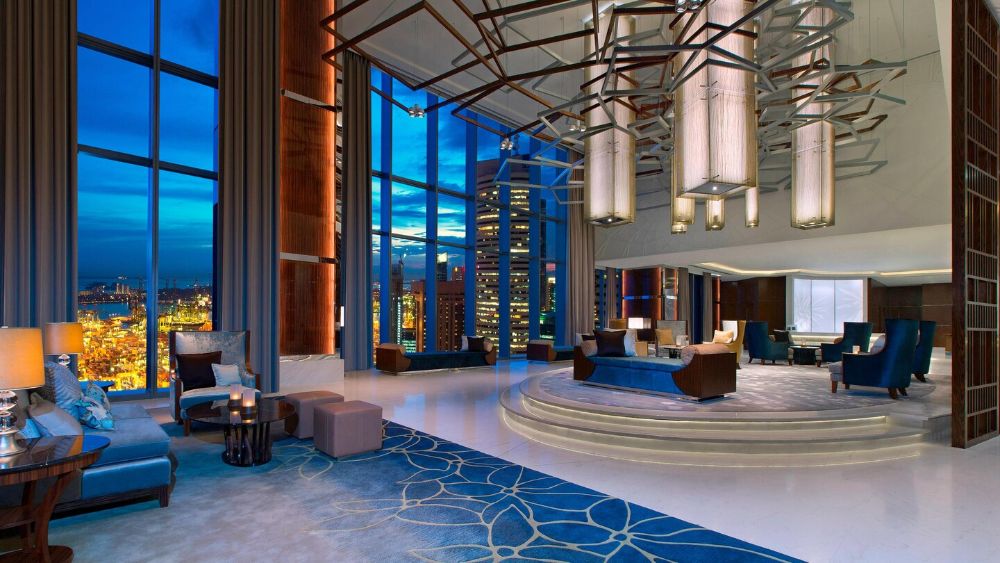
Applications take up to 14 days to process, but the first batch of five hotels has already been approved. We should expect to see more properties added by the end of July.
In case you’re wondering what a staycation in a Covid-19 world might look like, a friend who works in the industry forwarded me a circular issued by the STB. This lays out the various regulations that hotels need to comply with before they can take staycation guests, and hints at what the staycation experience may look like.
Overall requirements
On an overall level, hotels need to demonstrate their ability to meet the following:
- Density requirements
- Reduce face-to-face mingling among guests, employees, and between staff and guests
- Disperse crowds and prevent bunching
- Mandatory implementation of SafeEntry and encouraging the use of the TraceTogether app
- Implementing rigorous cleaning and disinfecting regimes, particularly for high-touch elements
Hotels will only be able to resume staycation marketing efforts after receiving approval from the MTI and STB.
Arrival & Check-In
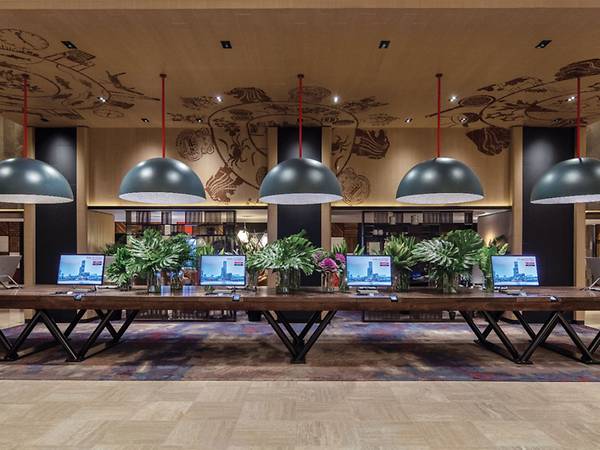
All guests will undergo a mandatory screening before entering the hotel (as well as before entering any guest facility). Anyone with a temperature of 38°C or higher will be barred from entry, so save yourself a wasted trip and take your temperature before coming down.
| 🌡️ I’m hot blooded, check it and see |
|
Some staycation packages are strictly non-refundable; others have 24-hour cancellation policies. But given all that’s happening, should hotels be obligated to offer refunds to guests with fevers? That would certainly be fair, and logical- you don’t want a sick guest to turn your property into the next supercluster. So far I’ve not seen any Singapore hotel implement such a policy, although it may happen in the USA with airline tickets. This of course raises all kinds of questions about gaming the system (maybe you’re quarreling with the wife and want to cancel the staycation, so you fake a temperature to get your money back), but I can’t see how hotels can’t adopt a policy like this. |
There will be strict regulations on the number of guests who can be in the lobby at any one time, which will mean staggered check-in and check-out timings.
Hotels typically set 12 p.m as check-out time, and 3 p.m for check-ins, but this has the tendency to create huge jams in the lobby, as any frequent traveler will attest to. Since that’s out of the question, we may see more properties opting for app-based check-in/out or express check-in/out.
That’s quite frankly long overdue. When I travel in the US, check-out is often as quick as 10 seconds- “Anything from the mini bar? No? OK, we’ve emailed you the bill. Happy trails”. Sometimes I don’t even go to the counter, simply dropping the key off in a designated box.
In Singapore, it can be a 10-minute affair- “Sorry sir we’re still waiting for housekeeping to check your room and take inventory because you look like a grifter and we’re pretty sure you stole the copper wire”. Let’s hope one of the lasting impacts of Covid-19 is an expedited check-in/out process.
| ⏰ 24 hour staycations? |
|
Alternatively, to stagger guest arrivals we may see more hotels offering so-called “24 hour staycations”. These allow guests to check-in at any time, and check-out 24 hours later (e.g 8 a.m to 8 a.m). The Far East Hotels (Village, Outpost, Barracks) were offering this feature with their staycation deals back in March, and I wouldn’t be surprised if we see more hotels adopting this. Given the lack of business travelers (who often time their routines around such schedules), there’s no real need to enforce standardized timing at the moment. |
Total occupancy in the lobby must be limited to no more than 1 individual per 10 sqm of space. That may be workable at larger hotels, but I wonder how those with intimate, personalized check-in experiences will do it. At The Barracks Hotel, for instance, the check-in area can really only accommodate two sets of guests at a time.
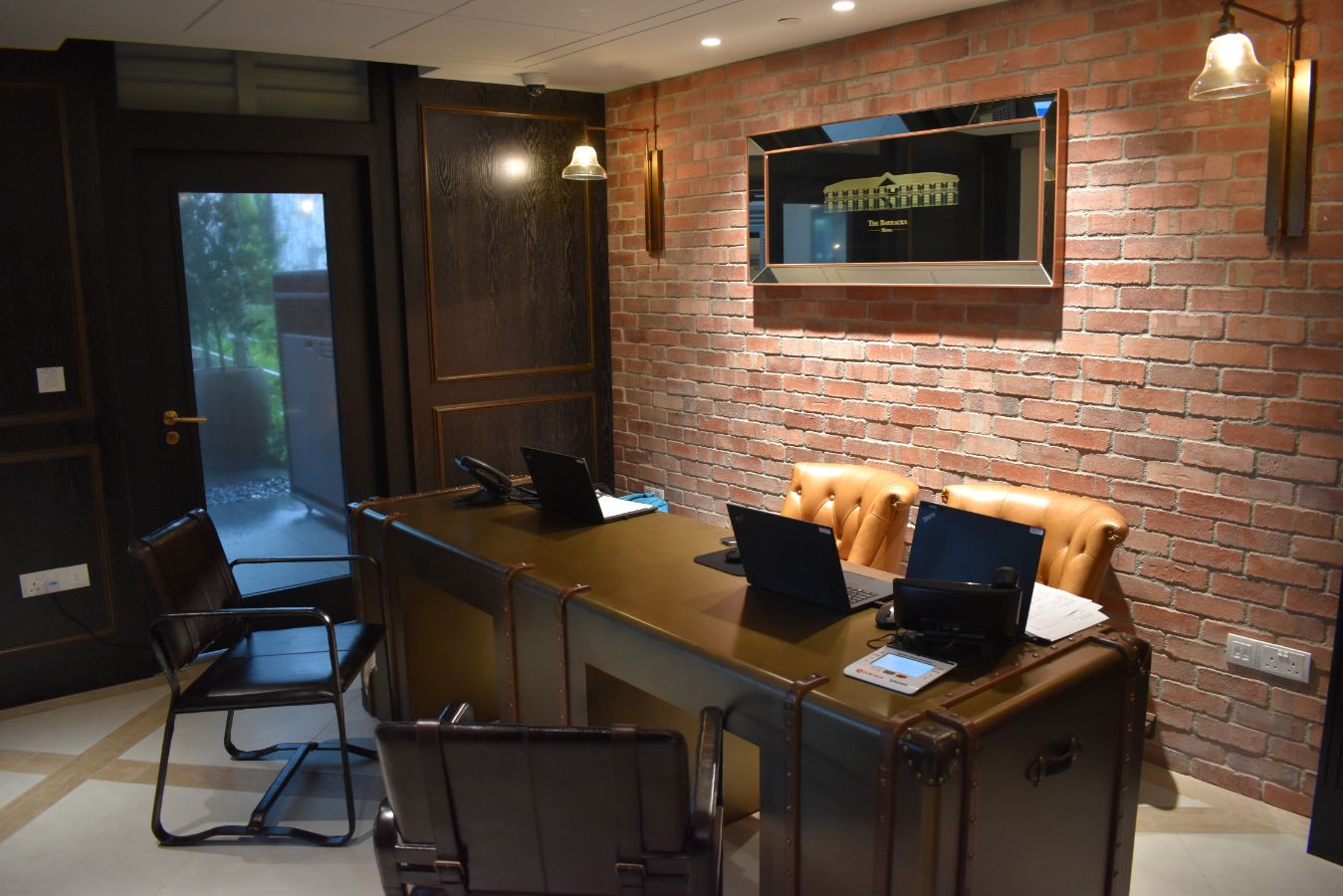
I think it’s likely we’ll see such upscale properties switching to in-room check-in/out, which allows the hotel associate to do a room tour at the same time.
To minimize the time spent in the lobby, the STB also recommends serving welcome drinks in the guest room instead of the lobby. I get the logic, but somehow it won’t quite be the same…
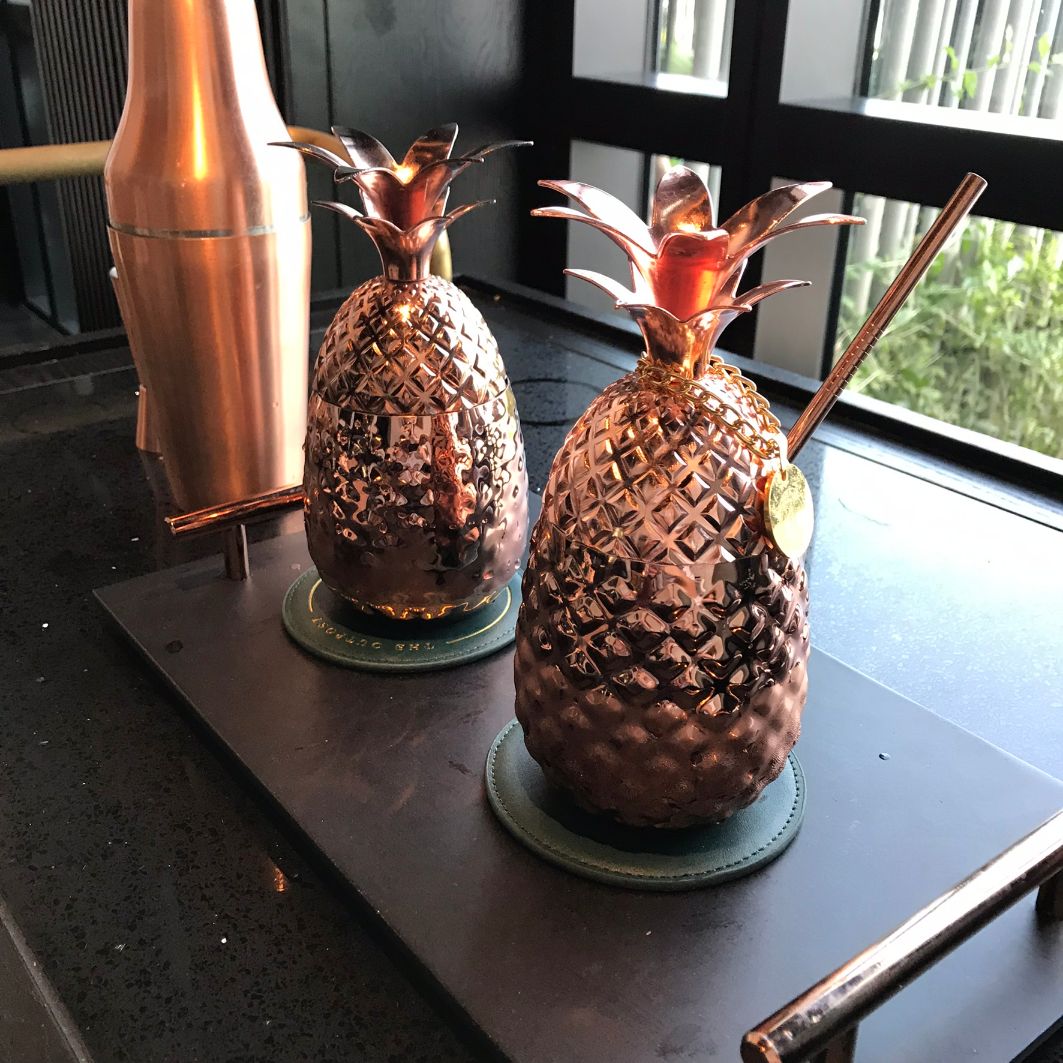
Hotels are further recommended to suspend valet services, offer virtual key cards and encourage cash-free payments.
In-room
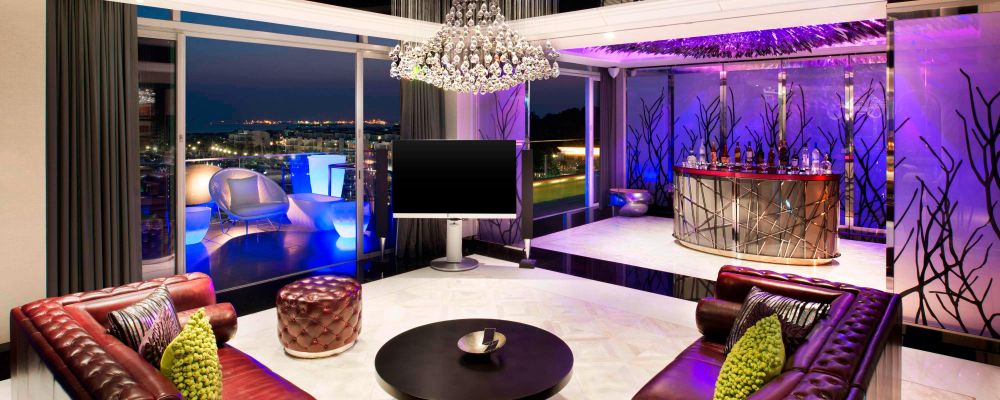
Room occupancy will be limited to five individuals (except where the gathering consists wholly of individuals from the same household). This means no wild parties, meetings and/or fertility rituals, none of which should be an issue for most people.
Hotels have been advised to explore the possibility of serving in-room dining through contactless delivery (read: knock, leave, run), or autonomous delivery technology.
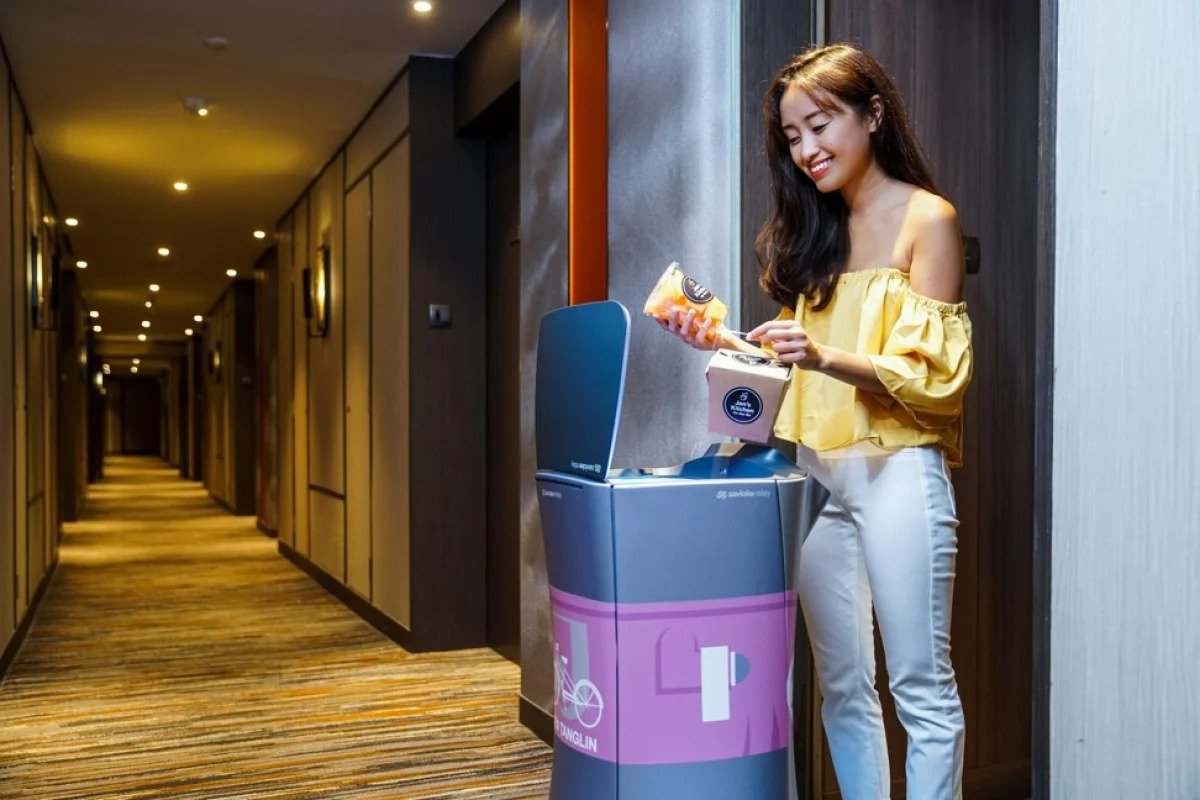
The latter is not as science-fictiony as it sounds. Hotel Jen, for instance, has been using robo-butlers since 2017. These relay robots are capable of delivering amenities and room service items around the clock, and can even ride the elevator autonomously (they cannot display love and affection, but an upcoming patch should sort that out). Their carrying capacity however is limited to a whimpy 4.5 kg- even I can carry almost that much.
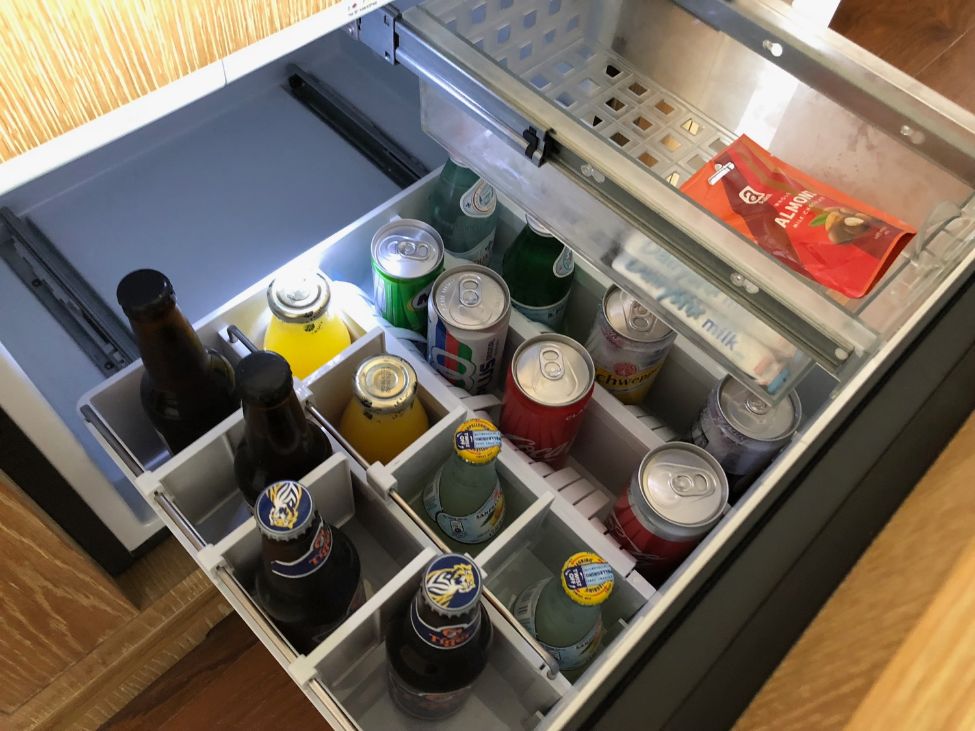
Mini-bar items should be provided on request only, presumably to ensure they aren’t manhandled by the previous guest. I hope this doesn’t lead hotels to do “stealth devaluations”- there are some properties known for “raid the minibar” privileges like the Naumi and Quincy Hotel, and it’d be nice if they can find a way to continue that in a post Covid-19 world.
Although this may make certain Swedish teenagers very angsty, hotels have been advised to avoid re-usable items like cloth napkins and placements, and instead switch to single use items for in-room dining.
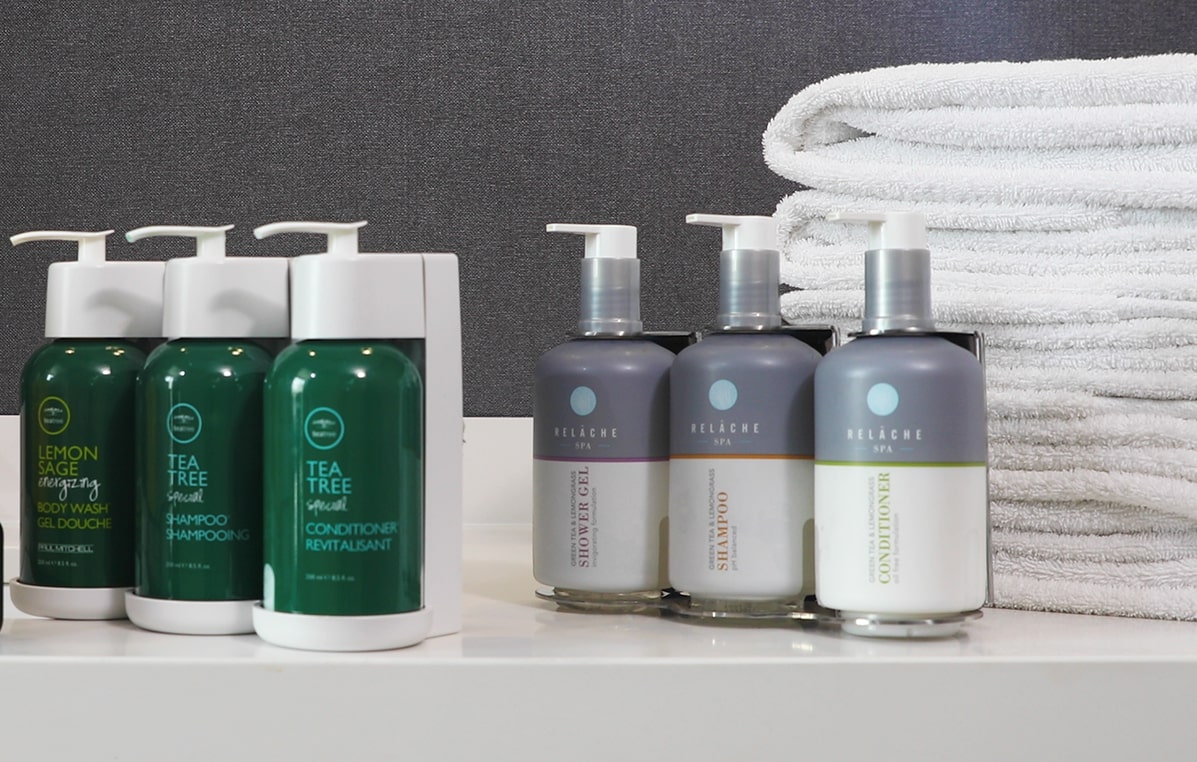
Incidentally, I think Covid-19 might mean a pause on the global shift away from single-use toiletries. Many chains like IHG and Marriott have undertaken to eliminate single-use toiletries within the next couple of years, but I just can’t see guests taking to bulk toiletries right now, given how the pandemic has turned most of us into hypochondriacs.
Housekeeping may be provided on an opt-in basis, although this won’t really be an issue since most staycations are only one night. For you germophobes out there, you’ll be pleased to know that the following cleaning measures are mandatory for all hotels:
- Washing and treating bed linen at high temperature between changes
- Deep cleaning carpets and upholstery between different guests occupying the room
- Sanitising room service equipment before and after each use
- Providing adequate disinfecting agents like hand sanitisers, disinfectant sprays, paper towels and wipes in guest rooms at all times
- Using hospital-grade disinfectants when cleaning the most frequently touched guest room areas and equipment, including light switches, door handles, TV remotes, thermostats, etc
- Reviewing and maintaining Heating, Ventilation and Air-Conditioning controls (HVAC) and air quality to ensure high functioning ventilation and air exchange
I’ve personally purchased a UV light on Qoo10, and can’t wait to do my first room inspection.
Food and beverage establishments
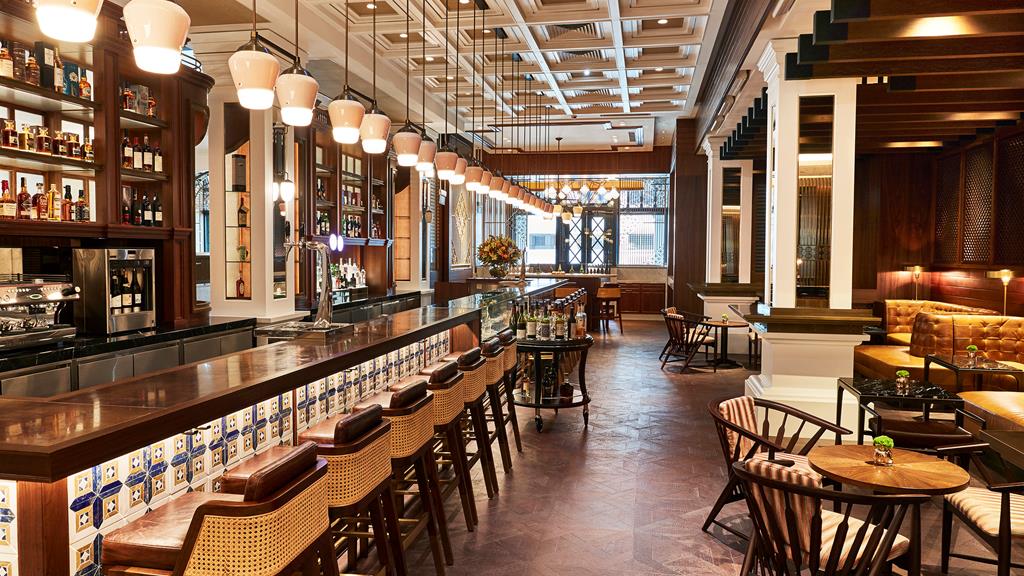
Hotels have been allowed to reopen their bars and restaurants under Phase 2, although quite a few are keeping bars shut for now (e.g the 15 Stamford bar at the Capitol Kempinski). Others, like Anti:Dote at the Fairmont, have imposed a mandatory food purchase requirement before drinks can be served.
In any case, hotel restaurants will be subject to the same regulations as restaurants outside, such as queue and crowd management, contact tracing and maximum table size restrictions.
Self-service buffets will not be allowed, so you can expect the quintessential hotel buffet to change. I don’t think that most hotels will switch to a la carte ordering for breakfast, however. This is simply too labor intensive, especially for larger properties. What we’re more likely to see are manned buffet lines, where hotel staff dish out portions and handle all the utensils.
| 🥞 Budget more time for breakfast |
| Restrictions on restaurant capacity and the removal of self-service options means you’ll likely need to budget more time for breakfast in the morning. I predict we may see some hotels offering complimentary in-room breakfast, or extending their breakfast hours. |
This also means that the traditional happy hour spread in the club lounge will need to be modified.
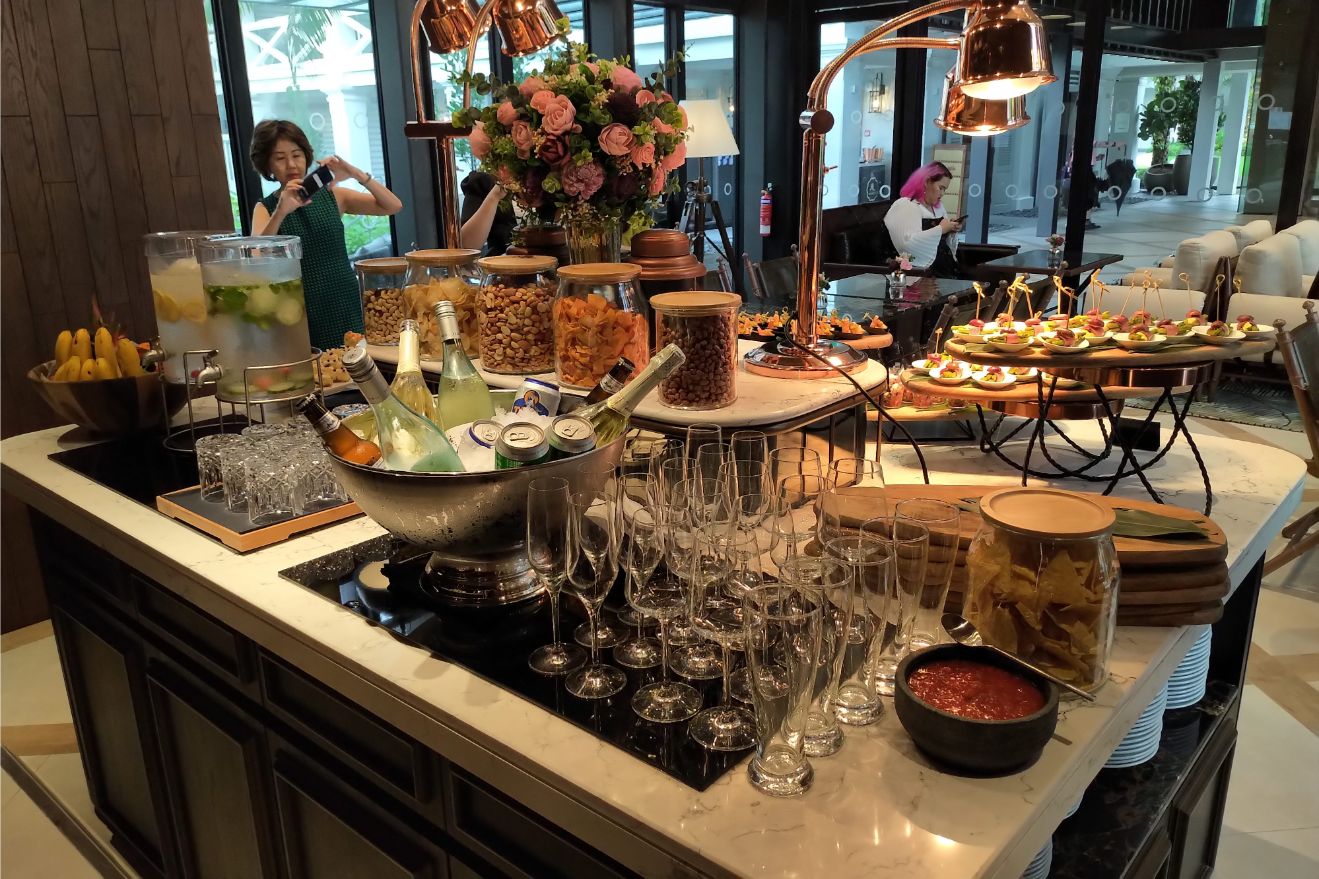
At higher-end hotels, expect made-to-order items and roving servers offering single-serve wines and cocktails. At lower-end hotels, expect to see a cut back in offerings, probably to pre-packaged snacks and shrink-wrapped fruit.
Recreational Facilities
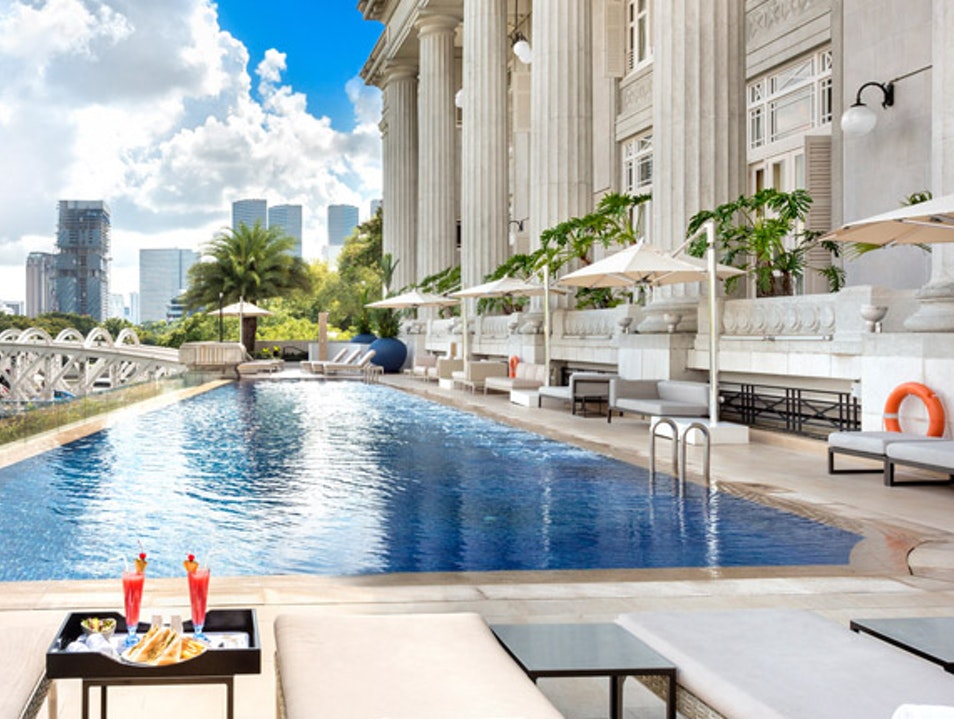
Swimming pools and gyms have already reopened under Phase 2, but hotels will be required to follow the Safe Management Measures as laid out by Sports Singapore.
For swimming pools, capacity constraints must be imposed, and 3-meter distancing maintained between groups. Any group activities can be no more than five people strong. It’s pretty much the same with gyms, where equipment will be placed with a 2-meter distance between users. Expect hotel gyms to switch from communal water coolers to individual bottled water.
Hotels may start a booking system for pool and gym facilities, so you’ll want to check on availability the moment you check-in. On the plus side, smaller crowds are a good thing, Covid-19 or not. My most enduring memory of the W Sentosa Cove is unfortunately not the eye-catching pool, but the sheer overcrowding on a weekend.
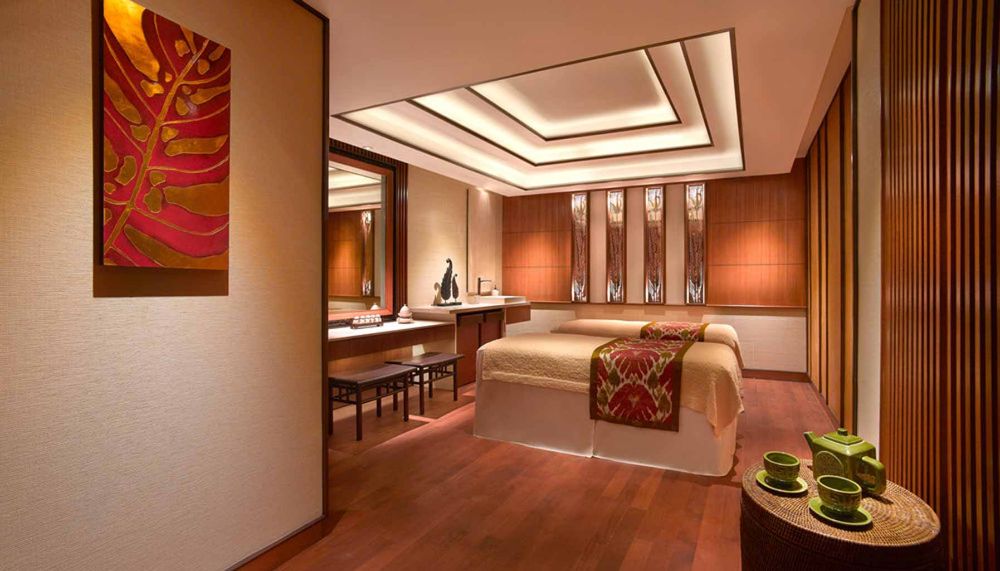
Spas are likewise permitted to operate, provided they adhere to the regulations laid out by Enterprise Singapore. This includes:
- Refraining from serving food and beverages to customers and removing shared items like newspapers and magazines
- Assigning one therapist to follow-through on all treatments with the same customer, where practicable
- Changing all clothing, towels and bedding after every use
- Using single-use massage oil, creams and beauty products
- Allowing sufficient time to clean the premises during operating hours
That last point will probably limit the number of customers spas can accept on a given day. If a spa treatment is part of your staycation plan, don’t leave it till the last minute to book.
Kids Club
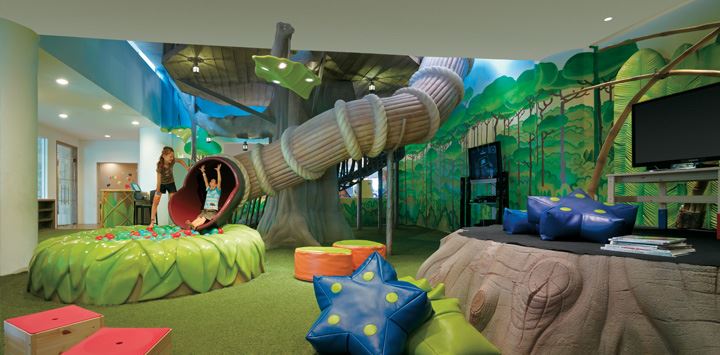
Kids Clubs in hotels may resume operations, abiding by guidelines issued by the STB for attractions in general. This means a 25% operating capacity cap, health screening and frequent cleaning.
These typically aren’t huge to begin with, so a 25% operating capacity may mean the need to pre-book a slot, just like gyms and pools.
Is it still worth doing a staycation?
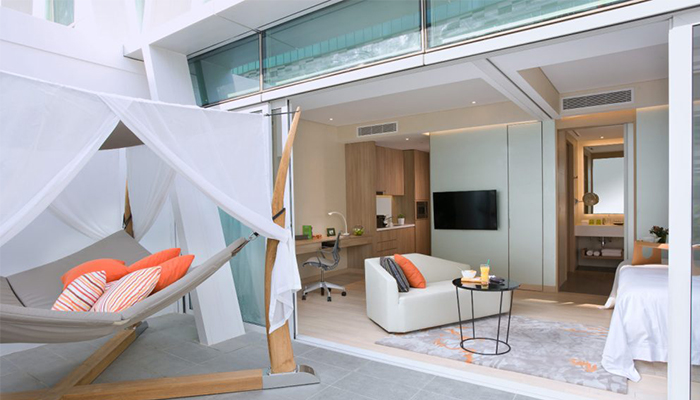
With all these changes, will it still be worth it to do a staycation?
It really depends on the individual and what you value, but I personally have no issues. As someone who hates crowds, I think I’ll enjoy it even more.
A lot depends on how your chosen hotel implements these measures. To be sure, there will be some which will see the Covid-19 pandemic as an excuse for cost-cutting (witness some airlines making the argument that it’s safe to serve water, but not alcohol). They may limit the breakfast spread, remove the booze from club lounge happy hours, and replace in-room amenities with cheaper disposable versions.
But there will others which see this as an opportunity to genuinely innovate their service routines. Covid-19 means no more buffets, so why not a small selection of high quality, made-to-order items? You can’t serve guests from a communal wine bottle, so why not buy a whole load of 20ml whisky samplers for tastings during happy hour? Keyless entry will be in vogue, so why not offer a free drink or snack to encourage take up?
It will become apparent very quickly which hotels fall into which category. I’m very excited to see what the more service-oriented hotels have in store, and how they’ll change up their routines to adapt to the new environment.
Conclusion
For those of you going mad at home- hold out just a couple weeks more!
Remember that the STB is keeping a list of hotels approved for staycations on its webpage, which we should expect to see populated very soon.
See the list of hotels approved for staycations here
Be sure to bookmark the SHA’s page below to browse staycation deals too.


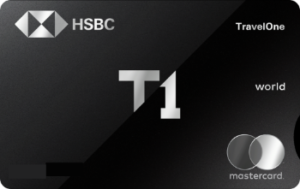





“THIS IS HOW SKYNET BEGINS”
:))
You laugh now, but wait till you’re being used as a battery to power the great robo overlord’s empire. Oh hubris
4.5kg at a time…? 😆
“It will become apparent very quickly which hotels fall into which category”: a statement that renders the importance of allowing others to test the waters before plunging in. Apart from the possibility of being “short-changed” the thing that bugs me is the impossibility of knowing the degree to which soft furnishings are cleaned and the adherence of individual room staff to supposed standards. Restaurants have fewer ‘uncleanables’. Spilt food is all too common. But hotel headboards, bedcovers, cushions, fabric seats, drapes …. I’m pretty certain no hotel will be dry-cleaning curtains between staycations. Hospitals use linoleum, hard plastics & PVC… Read more »